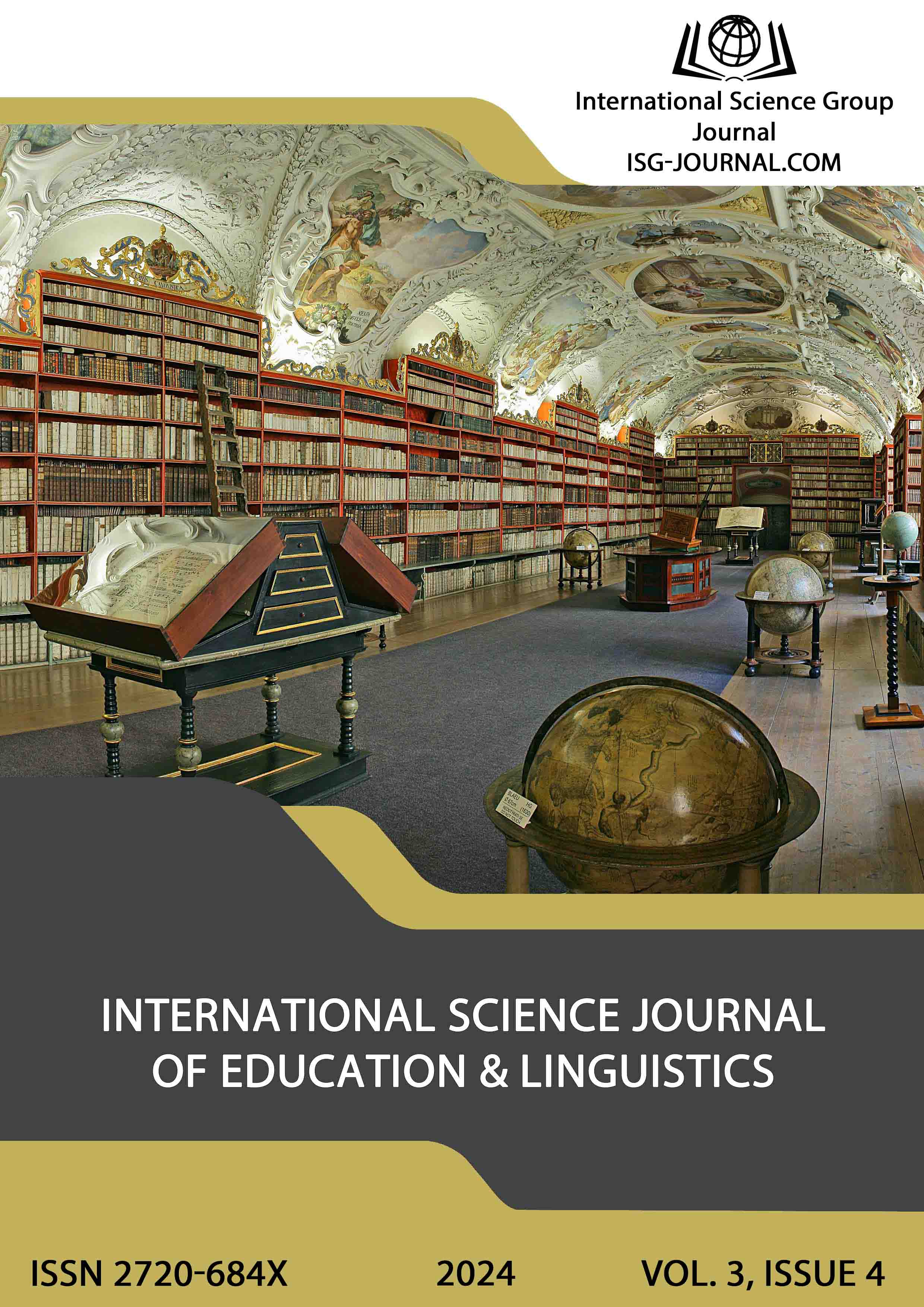An empirical study of the influence of university student's self-esteem on motivation to achieve success
DOI:
https://doi.org/10.46299/j.isjel.20240304.02Keywords:
personality, self-esteem, level of aspirations, personality motives, motivation to succeed, motivation to avoid failureAbstract
The article highlights the results of an empirical study of the impact of self-esteem on the motivation to succeed. Self-esteem is a complex personal formation and refers to the fundamental properties of a person. It reflects what a person learns about himself or herself from others, his or her own activity aimed at realizing his or her actions and personal qualities. In the current conditions of socio-economic development of society, one of the most important problems of human existence is the formation of a successful personality. Achieving success for modern students is a complex, multifaceted process of becoming a mature, competent personality as a subject of work, the prominent aspects of which are motivational and volitional and individual psychological characteristics of the personality that determine the specifics of achieving professional success. Success can be viewed as a personal experience of achieving success and as a characteristic feature of a person, which shows how effective and efficient a person is in achieving his or her goals. The analysis of existing studies has suggested the existence of a relationship between self-esteem and motivation to succeed as factors in the formation of a successful personality. The results of empirical studies have been carefully processed in both qualitative and quantitative terms. The mathematical processing of the data showed that self-esteem has a significant impact on motivation to succeed. The analysis of the correlation coefficient shows that the lower the self-esteem, the higher the motivation, and vice versa. Young students with high self-esteem have lower motivation. This may be due to the fact that young people with low self-esteem spend a lot of time self-analyzing and trying to strengthen their weaknesses through self-knowledge. This means they are motivated to become better in order to succeed. Students who are overconfident have lower motivation. They tend to believe that all their abilities, skills, status in society, etc. are at a high enough level, and therefore they rely on them.References
McClelland, D. C., Atkinson, J. W., Clark, R. A., 4 Lowell, E. L. (Ed) (1953). The Achievement Motive, New York: Appleton-Century-Crofts, https://doi.org/10.1037/11144-000
Maddi S. (2004). Hardiness: An operationalization of existential courage. Journal of Humanistic. Psychology, 44, 279–298.
Maslow A. (2008). A Theory of Human Motivation. Psychological Review, 50 (4), 370–396.
Heckhausen J., Heckhausen H. (2018). Motivation and Action. Springer Cham, 909.
Занюк С.С. (2002). Психологія мотивації : навч. посіб. Київ : Либідь, 304.
Максименко С. Д., Максименко К. С., Папуча М. В. (2007). Психологія особистості. Київ: Видавництво IOB «KMM», 296.
Долинська Л.В. Пенькова О.І. (2016). Самореалізація особистості як соціально-психологічний феномен. Науковий часопис Національного педагогічного університету імені М. П. Драгоманова. Серія 12: Психологічні науки, 3(48), 18-25.
Скрипченко О.В. та ін. (2023). Вікова та педагогічна психологія. Київ: Каравела, 2023, 400.
Роджерс К. (2021). Вчитися бути вільним. Гуманістична психологія: Антологія в З-х т. / За ред. Р. Трача і Г. Балла. Т. 1. Київ: Пульсари, 37-59.
Bandura A. (1995). Exercise of personal and collective efficacy in changing societies // Self-efficacy in changing societies / A. Bandura (Ed.). New York: Cambridge University Press.
Berns R. (1982). Self-concept development and education. London: Holt, Rinehart and Winston, London, 441.
James. W. (1983). The Principles of Psychology. Harvard University Press,1328.
Murray H. A. (1962). The Personality and Career of Satan. Journal of Social Issues, 18(4), 36–54.
McClelland D. (1988). Human Motivation: Cambridge University Press, 663.
Методика діагностики особистості на мотивацію до успіху Т. Елерса. Available at: http://um.co.ua/14/14-5/14-58142.html .
Методика дослідження самооцінки. Available at: https://studfile.net/preview/5263788/page:63/.
Downloads
Published
How to Cite
Issue
Section
License
Copyright (c) 2024 Bohdan Priadko

This work is licensed under a Creative Commons Attribution 4.0 International License.





